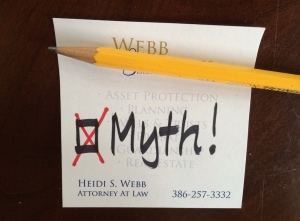
A will is a legal document that instructs how your property will be distributed after your death. It allows you to name a Personal Representative charged with overseeing the distribution of your property and shepherding it through the probate process. Probate is the court process that’s required to validate your will and transfer your assets.
However, certain assets may sit outside of your will. These include life insurance policies or qualified retirement accounts (401(k)s, IRAs, etc.) that have a beneficiary designation, as well as assets or accounts with a pay-on-death (POD) or a transfer-on-death (TOD) designation. These assets transfer directly to the named beneficiaries and are not subject to probate.
This is why it’s so important to review your account beneficiary designations annually or whenever changes in your life occur. Even if your will and/or trust names your current spouse as the beneficiary or co-trustee, if assets sit outside of your will or a trust, they are not governed by those documents and outdated beneficiary designations can control.



